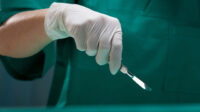The practice of medicine is a dynamic field, constantly evolving with advances in technology, research, and best practices. As a result, board certification has become an essential part of the medical profession, ensuring that physicians stay up to date with the latest knowledge and skills. For general surgeons, the Continuous Certification Assessment (CCA) plays a vital role in maintaining their certification and providing high-quality patient care. Here are some things you know before registering and completing the assessment.
CCA Registration Dates
- Registration for the general surgery assessment opened August 1, 2023, and is open until November 6, 2023.
- The 2023 assessment itself is available from August 28, 2023, through November 6, 2023.
- Once you register for your first assessment, you are enrolled in the CCA program.
- The assessment is required every other year, and a grace year may be granted based on certain stipulations.
- According to the ABS, you can register for the new assessment only if you are, “up to date on meeting the requirements of the ABS Continuous Certification Program. This now includes submitting a 12-month operative log every 10 years and reference forms every five years.” You can check your status on the ABS website.
Taking the Assessment
According to the ABS, the assessment process is designed so that diplomates can “demonstrate their surgical knowledge on a continual basis”. It is aimed at making testing easier. The assessment is conducted “100% online” and is open book.
You can take the test:
- From your own computer; no need to go to a testing site
- You can also choose the time you take the assessment; no longer restricted to specific windows assigned by the ABS
- Once you begin, you have two weeks to complete the assessment
- Topics and references are provided in advance
Receiving Results
Once you take the assessment, the painful waiting period for results has been eliminated. The ABS will deliver feedback and results to you immediately.
- 80% correct answers are required to pass with two chances to answer
- 40% or higher is required on the first attempt to qualify for a second attempt
After the Assessment
When you pass the assessment congratulations are in order, but your work isn’t done. You must continue to earn CMEs on an ongoing basis, but the requirement has been shrunk. The ABS has reduced the number of Category 1 CME credits required.
- Old requirement: 150 Category 1 CME credits over five years, with at least 50 including self-assessment
- New requirement: 125 CME credits over five years with no self-assessment required
On an ongoing basis, you must maintain a level of professional practice. This involves making sure that the following items are updated “no less than” every five years:
- Medical license
- Hospital and/or surgical center privileges
- Professional references
- Practice improvement by participation in a registry or quality assessment program
In previous years the ABS promised it was going to simplify the certification process. It also said it was listening to extensive input from surgeons across the country. This would appear they meant it. Although the compliance details are numerous, the new program may indeed serve to simplify the process overall.





